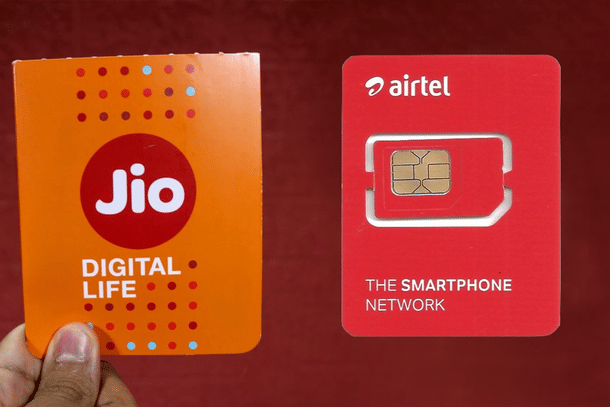Business
To Prevent A Jio-Airtel Duopoly, Government Should Consider Vodafone Takeover
R Jagannathan
Dec 04, 2020, 11:29 AM | Updated 11:29 AM IST
Save & read from anywhere!
Bookmark stories for easy access on any device or the Swarajya app.


That the Indian telecom sector is rapidly becoming a two-player market has been clear for some time now. Thanks to financial weakness, the race is now between Reliance Jio and Bharti Airtel, with market shares of 35.19 per cent and 28.44 per cent, and Vodafone seeing persistent declines.
In September 2020, Airtel saw a rise of nearly four million subscribers while Jio gained around one-and-a-half million. Vodafone lost nearly five million during the month, suggesting that consumers now believe that it is a loser.
The public sector Bharat Sanchar Nigam Limited (BSNL), with a significant share of 10.36 per cent, is still a player, but its future depends on the government’s dollops of subsidies and extra capital. It is being kept alive on drips and IV feeds, which is not the right place to be when fiscal resources are thin post-Covid.
Vodafone’s problem is that it has huge dues payable to government after the Supreme Court’s adjusted gross revenues (AGR) judgement last year. Any fresh resources raised will largely go towards paying government dues, and not much towards network expansion and investment. So, it may continue to lose market share.
If the government wants to think out-of-the-box, it should look at a takeover of Vodafone and merger with BSNL, which will allow it to write off the Vodafone dues against capital infusions. The much better Vodafone management crew can then be allowed to take the merged entity into a higher orbit. The government can then divest a part of its equity, to bring its ownership to below 50 per cent. A public sector company with 25-30 per cent market share, and with less than 50 per cent government ownership, can be run reasonably efficiently. It would also be a useful counterweight to the emerging private sector duopoly of Jio and Airtel from.
Overall, with subscriber additions now down to a trickle – the total growth in new wireless subscribers was stagnant around 1.148 billion in September, which means the battle is now in the broadband market, where Jio has a dominant share.
According to Telecom Regulatory Authority of India (TRAI) data, Reliance Jio’s broadband market share is at 55.85 per cent, with Airtel at a distant 22.86 per cent and Vodafone at 16.5 per cent.
But while Jio has a natural advantage here, having started with its IP-based networks right from the outset in September 2016, the real battle will be in the fibre-to-home-and-offices market, which is where consumption of entertainment and videos will spike. Covid-19 has ensured high growth in cable-delivered video on demand services provided by Netflix and Prime Video, not to speak of other OTT (over-the-top) platforms like Hotstar.
Wired subscribers of broadband services rose by 3.13 per cent in September over the previous month as compared to the 1.36 per cent growth in broadband delivered through wireless dongles or mobile phones.
If Jio is to maintain its dominance in broadband, this is where it has to direct new investment, for mobile subscriber growth does not have much juice left in it. Also, revenue margins are higher in broadband services delivered by cable to homes and offices than when offered through wireless devices. The speeds achievable on mobile phones are a fraction of what can be delivered through fibre reaching the home.
In the foreseeable future, the battle will thus be about:
1. Broadband delivered by fibre optic cables to homes and offices.
2. Higher margin revenue growth in traditional and broadband mobile wireless services.
3. 5G services, when they are opened up through the allocation of adequate spectrum.
As things stand, it is difficult to see Vodafone being able to arrest its decline (it needs several thousand crores to start making investments in networks and 5G spectrum), or BSNL, which is seeing its costs rise. They should seek comfort in each other’s arms. Now that BSNL has a lower load of employees on the payroll after its generous voluntary separation scheme, this may be a good time for government to make its moves on Vodafone.
Jagannathan is former Editorial Director, Swarajya. He tweets at @TheJaggi.





